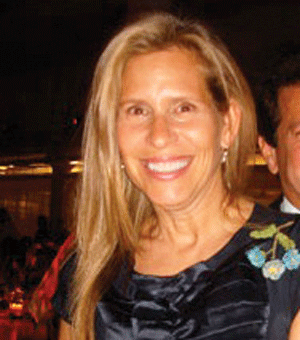
BY SUSANNA AARON | Hudson River Park has become a cherished lifeline in every West Sider’s daily life. The park is beautiful and each year more people are drawn to its amenities and programming. However, the park is still not completed, and has a long way to go to fulfill its original mandate.
Tom Fox’s recent talking point (“Can the Hudson River Park Trust still be trusted?”), printed in this newspaper last week, expresses the passion that he and so many others have shown to Hudson River Park since its inception.
There are so many points on which I agree with Tom about the needs of Hudson River Park.
“We need to develop an overall funding mechanism”: The stream of capital funding from the city and state has dwindled to a trickle; the park receives no government money for operations. Something’s got to give. The law that allows the Hudson River Park Trust to sell development rights offers real potential. We should talk publicly about how to structure it, but we should be careful not to allow cynics to snuff it.
“Efforts to fundraise…are critical”: The Friends of Hudson River Park just began fundraising within the last couple of years and already is discovering that the park’s neighbors are generous and committed partners to its welfare.
“There’s no question that Pier 40 is in trouble”: It’s time for folks to stop accusing the Trust of crying “wolf” about Pier 40. Both the roof and the pilings are in dire straits, and a new engineering group’s report will soon confirm what the Trust has been saying for years. The damage is serious, and the cost to repair is high.
However, there are other areas where Tom and I disagree. He has no faith in the current Trust leadership, whereas I think they’re making the best of a bad situation. It’s so easy to criticize, but people forget that the Trust MUST find a solution for this park. No one else is providing one.
The Trust is forthcoming with information. Its representatives visit the community boards regularly. Its board meetings are open to the public, its financial documents are a matter of public record. Anyone who doubts the severity of the park’s financial straits has ample opportunity to check the Trust’s budget.
In terms of the park’s revenue, through improvements in its efficiency and additional income from Friends of Hudson River Park, revenue has grown and the park has been able to improve operations. But because of the capital maintenance needs of Pier 40, the park has not been able to cover its budget.
Tom points out that the Hudson River Park Act never “required” the Trust to be self-sufficient, that it just “allowed” it to do so. This may be the case, but it doesn’t change anything. The city and state were generous while the park was being built, but those days are gone. If any elected official would like to come to the park’s aid and bring home some public money, be my guest. I don’t see it happening.
In terms of the much-discussed M.O.U. (memorandum of understanding), by signing onto the state’s non-binding agreement with the developer of the St. John’s Terminal building, the Trust simply acknowledged that IF the General Project Plan proceeded, THEN it would agree to reduce the unused development rights on Pier 40 and accept payment for the increased property value at the St. John’s site. If the city and state decide to proceed with the city’s land use review process (ULURP) — as they are expected to do — we want to be certain that the process moves quickly and the park gets the funds it needs to repair the pier.
I also need to clarify the partnership between Friends and the Trust. Friends of Hudson River Park indeed began as a watchdog group, which was appropriate at the beginning, before the park was built. However, as time passed and the majority of the park came online, it became evident to the Friends that private funding would become an indispensable part of the park’s future. That’s why the Friends and Trust boards forged an agreement three years ago to work more closely together, and allow the Friends to become the primary fundraising arm for the park.
We work alongside the Hudson River Park Trust, but we have separate boards, budgets and bylaws. Our fiduciary responsibility is to the community that uses the park and that contributes to its welfare. That has never changed.
What we can all agree on is that now is a critical time for the park. We should find common ground by working together to develop a road map that will allow us to complete the park and realize the vision that we have fought for so many years to achieve.
Aaron is a “citizen advocate” board of directors member, Friends of Hudson River Park


































